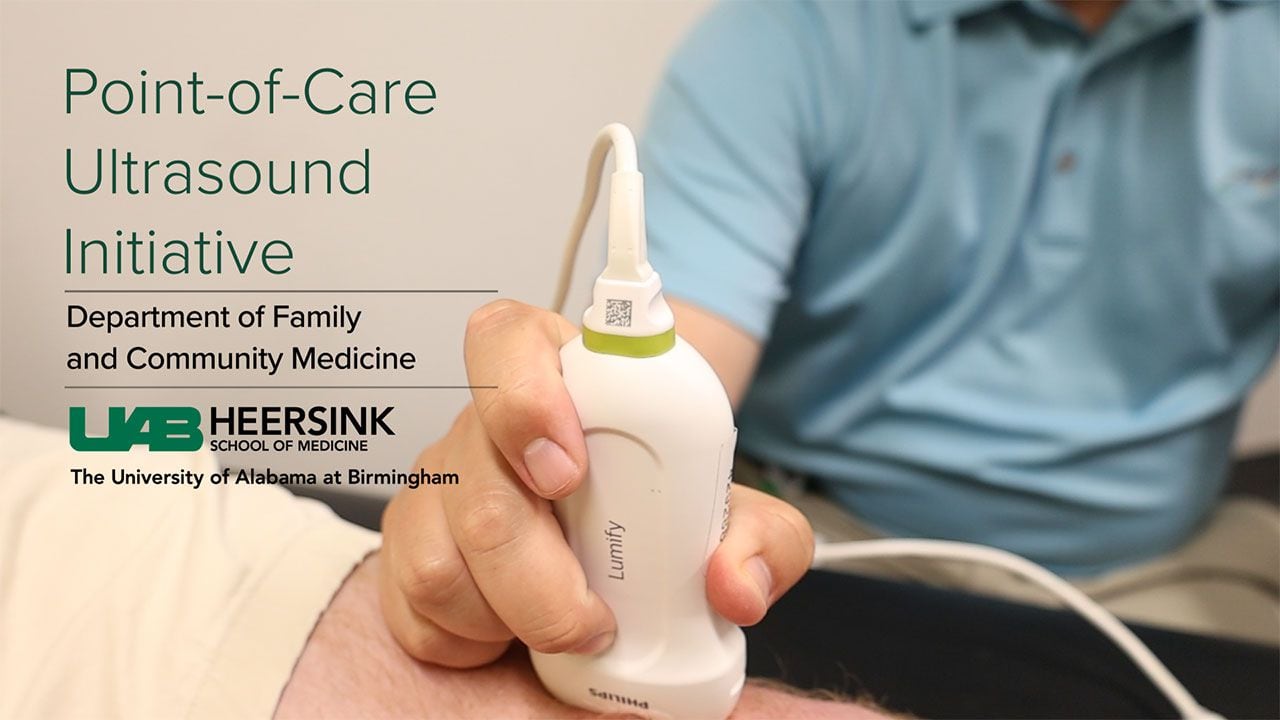POCUS diagnosis: UAB medical students now have portable ultrasound devices
Every medical student at the University of Alabama at Birmingham now has access to a portable point-of-care ultrasound unit (POCUS unit) for the first time to help diagnose a patient’s potential problems on the spot, thanks to a $2 million federal grant awarded to the Department of Family and Community Medicine.
UAB is one of the first medical schools in the United States to provide these devices to all of its medical students, according to a UAB press release. A POCUS unit, as opposed to the dedicated machine on wheels used by technicians in labor and delivery units or hospitals, is designed to fit in a clinician’s pocket and connect to a tablet or smartphone to visualize the results.
“Clinicians can use handheld ultrasound to evaluate almost every major organ system and better visualize suspected pathology (cause of disease),” said Steven Brown, M.D., assistant professor in the Department of Family and Community Medicine. “Some have even called it the ‘stethoscope of the future.’”
The POCUS Initiative includes 100 units for community preceptors who teach UAB medical students in their clinics, in addition to the 600 devices for medical students. The units will be used by those teachers and medical students to detect soft-tissue infections, fluid accumulation in the joints and abdomen, gallbladder disease, kidney stones, heart failure, dehydration, and other conditions. Residents, faculty, and medical students will be educated and trained by the department.
“POCUS could be particularly helpful in caring for patients in rural and urban underserved areas, who already face significant wait times for appointments or must travel long distances for medical care,” said Irfan Asif, M.D., chair of the Department of Family and Community Medicine, associate dean for Primary Care and Rural Health, and director of UAB’s primary care service line.
“With handheld ultrasounds, a health care provider could determine whether a soft-tissue lesion is an abscess or a cyst or a lipoma or a mass, each of which would require different treatment decisions and follow-up tests,” said Erin DeLaney, M.D., vice chair for Clinical Care and Quality of UAB Family and Community Medicine – Highlands.
The POCUS Initiative was made possible by the Department of Family and Community Medicine’s Comprehensive Urban Underserved and Rural Experience, or CU2RE program. In 2020, the federal Health Resources and Services Administration awarded CU2RE a $7 million grant to recruit, train, and retain medical students interested in primary care and committed to serving in Alabama’s rural and urban underserved areas. The goal is to reduce Alabama’s projected shortage of 447 primary care providers by 2030.
